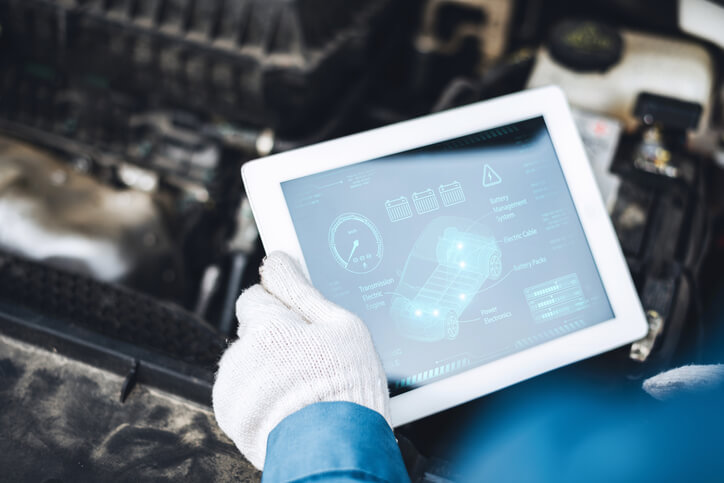Decoding Telematics: What Mechanics Need to Know as Vehicles Get Smarter
From navigation systems and vehicle tracking to real-time diagnostics, telematics is transforming how cars are built, maintained, and repaired. It’s no longer just about what’s under the hood, it’s about what’s inside the software. For automotive school students, this means one thing: evolve with the industry, or risk being left behind.
At ATC Montreal, our programs are built to reflect where the industry is headed, not where it’s been. And telematics is one of the fastest-growing areas every technician needs to understand.
What Is Telematics, Anyway?
Telematics refers to the integration of telecommunications and informatics in vehicles. It allows for the collection, transmission, and analysis of data from a vehicle in real time. This data can include:
- GPS location
- Fuel efficiency
- Tire pressure
- Engine diagnostics
- Driving habits
- Maintenance alerts
Whether it’s through a built-in system or a plug-in device, telematics helps drivers, fleet managers, and technicians make smarter decisions based on real-time vehicle performance.
Why Telematics Matters in Automotive School
What does a mechanic need with all this data? The answer: everything.
Modern vehicles can send you diagnostic trouble codes (DTCs), notify you of battery performance dips, or warn of an imminent brake issue. Sometimes, before the driver notices a thing. For technicians, telematics enables:
- Faster and more accurate diagnostics
- Remote issue monitoring
- Preventive maintenance recommendations
- Reduced guesswork in troubleshooting
It’s no longer just about replacing a part, it’s about understanding what the vehicle tells you.
This is why learning telematics isn’t optional. At an industry-focused auto mechanic school like ATC Montreal, students learn to work with telematics software and tools as confidently as they use a wrench or multimeter.

How Our Automotive School Prepares You
At ATC Montreal, our automotive school curriculum is designed to reflect the industry’s shift toward smart, connected vehicles. That means:
- Learning how to read and interpret vehicle data through telematics systems
- Understanding the role of OBD-II ports and Bluetooth-enabled diagnostics
- Gaining experience with industry-standard software tools
- Exploring how telematics supports fleet management and predictive maintenance
These are the skills modern employers look for, and they’re what set ATC grads apart.
Hands-on practice with real telematics systems helps our students build both confidence and competence. You’ll learn not just how to use the tools, but how to explain the data to clients and help them make informed decisions about their vehicles.

Telematics Is Just the Beginning
Telematics is the gateway to broader innovations. It connects to:
- Autonomous driving systems
- Advanced driver assistance systems (ADAS)
- Over-the-air software updates
- Smart city infrastructure
Mechanics of the future won’t just turn wrenches, they’ll interface with technology, interpret data, and ensure that vehicle software and hardware work together seamlessly. This is why students enrolling in automotive training today need more than mechanical know-how; they need digital fluency, too.
The Future Technician Starts Here
If you’re considering a career in auto repair, now is the time to train for the vehicles of tomorrow. Telematics will continue to shape how mechanics do their jobs, whether they’re diagnosing an engine issue, helping a client boost fuel efficiency, or working in a connected fleet environment.
With the right education from a leading auto mechanic school, you’ll be ready to meet these challenges head-on.
Are you looking for comprehensive automotive training?
Contact ATC Montreal for more information.


